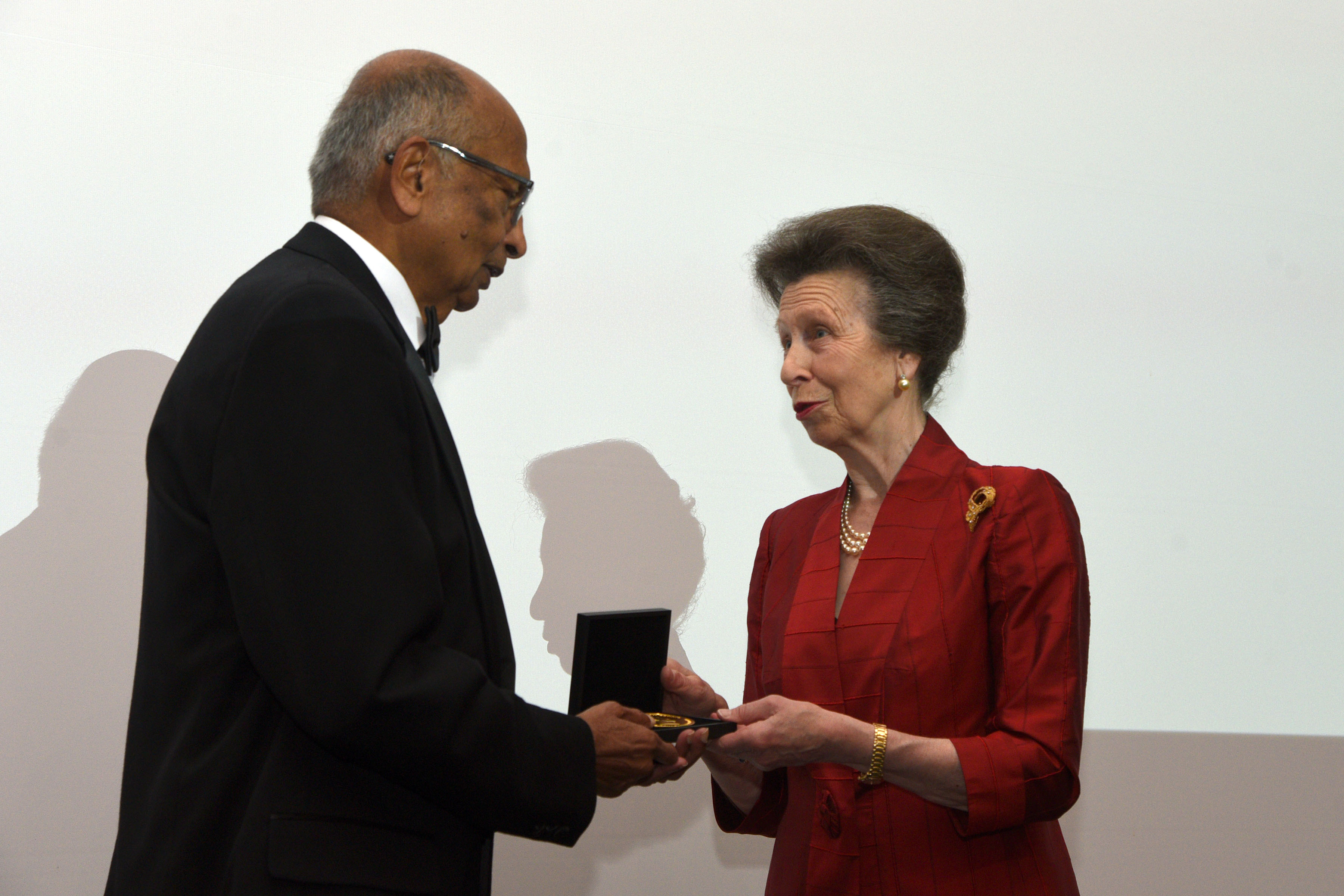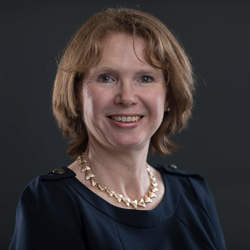- Dr Arogyaswami J Paulraj, Stanford University Professor and Senior Advisor for Celesta Capital, is recognized for pioneering the invention of Multiple-Input, Multiple-Output (MIMO) technology, the foundation for all current and future broadband wireless communications.
Dr Arogyaswami J Paulraj, Stanford University (Emeritus) Professor and Senior Advisor for deep tech venture capital firm Celesta Capital, has been awarded the Royal Academy of Engineering’s most prestigious individual award, the Prince Philip Medal. He was presented with the award by Her Royal Highness The Princess Royal, Royal Fellow of the Academy, in London on 11 June.

Dr Arogyaswami J Paulraj being presented with the Prince Philip Medal by HRH The Princess Royal
The award is made biennially to an engineer who has made exceptional contributions to engineering through practice, management, or education. The medal was first presented in 1991 to Air Commodore Sir Frank Whittle, the pioneer of jet engine technology that transformed air travel.
The 2024 Prince Philip Medal recognizes Dr Paulraj’s invention and commercialisation of Multiple-Input, Multiple-Output (MIMO) wireless technology, the core enabler of 4G, 5G mobile, and Wi-Fi networks.
Today, more than 6.5 billion smartphone users around the world benefit from MIMO-powered wireless networks, and 75% of global internet access is via wireless. The technology has accelerated the growth of the digital economy, which currently accounts for 10% of GDP in advanced economies and is expected to surge to 40% within the next three decades. Estimates place the global economic value of wireless networks at over $7.5 trillion annually.
India has more than 1.1 billion 4G/5G subscribers. Entry-level smart phones selling for less than $90 and affordable low-cost access charges have allowed all economic levels in India to access the growing digital public infrastructure. Wireless internet enabled by MIMO technology is now an important catalyst for India’s economic growth.
“I am deeply honored to receive this prestigious recognition,” said Dr Paulraj. “After pioneering this breakthrough wireless technology and now seeing its transformative impact, it is indeed humbling. I remain excited for more opportunities for innovations driven by new applications and the increasing geographic spread of wireless networks.”
Dr Paulraj served in the Indian Navy for 25 years on R&D assignments ranging from developing ASW sonar systems to sabbaticals at Stanford University and IIT Delhi, where he made foundational contributions to the theory of signal processing. He was also involved in founding three national labs for India: AI and Robotics, High-speed Computing, and Military Electronics. In 1991, Dr. Paulraj retired from the Navy with the rank of Commodore and joined Stanford University as a research associate.
Dr Paulraj has received many of the world’s top recognitions in technology, including the Faraday Medal, the Alexander Graham Bell Medal, and the Marconi Prize. He is also the recipient of the Padma Bhushan award from the Government of India and the Friendship Award from the Government of the People’s Republic of China.
Nominating Professor Paulraj for the award, Dr Mallikarjun Tatipamula FREng FRSE, CTO at Ericsson Silicon Valley, said:
“Professor Paulraj is a most deserving winner of the Prince Philip Medal, the Royal Academy of Engineering’s most prestigious individual award, not only for the theoretical breakthroughs that led to the invention of MIMO, but also for his successful development and commercialisation of the technology, which today is deployed at a global scale. The 4G and 5G mobile and Wi-Fi access that we often take for granted would simply not be possible without MIMO.”
Professor Lajos Hanzo FREng, Chair of Telecommunications at the University of Southampton, said:
“I cannot help but stress my great admiration for Paul’s contributions both to theoretical breakthroughs and his ability to translate them into practical systems. Entering the Navy at a very young age, Paul had very little formal academic education, but he repeatedly entered new fields, teaching himself a broad range of mathematical and engineering topics.”
Notes for editors
- The Prince Philip Medal is presented in honour of the late Prince Philip, Duke of Edinburgh KG KT, who was Senior Fellow of the Academy and was instrumental in the establishment of the Royal Academy of Engineering. The award is made biennially to an engineer of any nationality who has made an exceptional contribution to engineering. Previous winners include the wartime pioneer and inventor of the jet engine Air Commodore Sir Frank Whittle OM KBE CB FREng FRS and Dr Gladys West, whose mathematical modelling of the Earth’s surface enabled the engineering development of GPS.
- The Royal Academy of Engineering is harnessing the power of engineering to build a sustainable society and an inclusive economy that works for everyone. In collaboration with our Fellows and partners, we’re growing talent and developing skills for the future, driving innovation and building global partnerships, and influencing policy and engaging the public. Together we’re working to tackle the greatest challenges of our age.
For more information please contact: Jane Sutton at the Royal Academy of Engineering; Tel. 020 7766 0636; email: [email protected].

